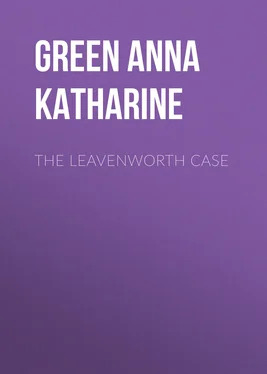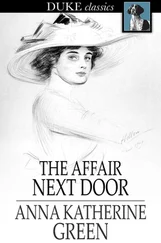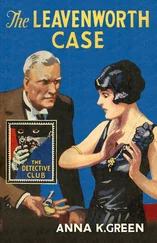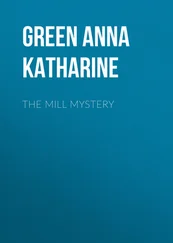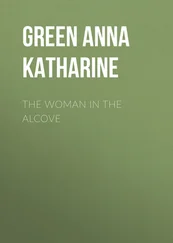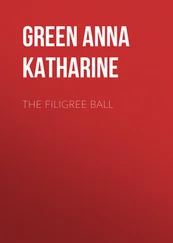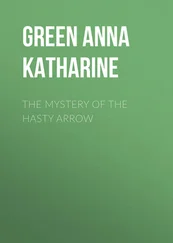Anna Green - The Leavenworth Case
Здесь есть возможность читать онлайн «Anna Green - The Leavenworth Case» — ознакомительный отрывок электронной книги совершенно бесплатно, а после прочтения отрывка купить полную версию. В некоторых случаях можно слушать аудио, скачать через торрент в формате fb2 и присутствует краткое содержание. Жанр: foreign_prose, Классический детектив, foreign_detective, foreign_antique, на английском языке. Описание произведения, (предисловие) а так же отзывы посетителей доступны на портале библиотеки ЛибКат.
- Название:The Leavenworth Case
- Автор:
- Жанр:
- Год:неизвестен
- ISBN:нет данных
- Рейтинг книги:3 / 5. Голосов: 1
-
Избранное:Добавить в избранное
- Отзывы:
-
Ваша оценка:
- 60
- 1
- 2
- 3
- 4
- 5
The Leavenworth Case: краткое содержание, описание и аннотация
Предлагаем к чтению аннотацию, описание, краткое содержание или предисловие (зависит от того, что написал сам автор книги «The Leavenworth Case»). Если вы не нашли необходимую информацию о книге — напишите в комментариях, мы постараемся отыскать её.
The Leavenworth Case — читать онлайн ознакомительный отрывок
Ниже представлен текст книги, разбитый по страницам. Система сохранения места последней прочитанной страницы, позволяет с удобством читать онлайн бесплатно книгу «The Leavenworth Case», без необходимости каждый раз заново искать на чём Вы остановились. Поставьте закладку, и сможете в любой момент перейти на страницу, на которой закончили чтение.
Интервал:
Закладка:
“And do you expect me to remain here? Why, I should die! Here to-night?” and the long shudders shook her very frame.
“It is not at all necessary for you to do so, Miss Leavenworth,” broke in a bland voice over our shoulders.
I turned with a start. Mr. Gryce was not only at our back, but had evidently been there for some moments. Seated near the door, one hand in his pocket, the other caressing the arm of his chair, he met our gaze with a sidelong smile that seemed at once to beg pardon for the intrusion, and to assure us it was made with no unworthy motive. “Everything will be properly looked after, Miss; you can leave with perfect safety.”
I expected to see her resent this interference; but instead of that, she manifested a certain satisfaction in beholding him there.
Drawing me to one side, she whispered, “You think this Mr. Gryce very clever, do you not?”
“Well,” I cautiously replied, “he ought to be to hold the position he does. The authorities evidently repose great confidence in him.”
Stepping from my side as suddenly as she had approached it, she crossed the room and stood before Mr. Gryce.
“Sir,” said she, gazing at him with a glance of entreaty: “I hear you have great talents; that you can ferret out the real criminal from a score of doubtful characters, and that nothing can escape the penetration of your eye. If this is so, have pity on two orphan girls, suddenly bereft of their guardian and protector, and use your acknowledged skill in finding out who has committed this crime. It would be folly in me to endeavor to hide from you that my cousin in her testimony has given cause for suspicion; but I here declare her to be as innocent of wrong as I am; and I am only endeavoring to turn the eye of justice from the guiltless to the guilty when I entreat you to look elsewhere for the culprit who committed this deed.” Pausing, she held her two hands out before him. “It must have been some common burglar or desperado; can you not bring him, then, to justice?”
Her attitude was so touching, her whole appearance so earnest and appealing, that I saw Mr. Gryce’s countenance brim with suppressed emotion, though his eye never left the coffee-urn upon which it had fixed itself at her first approach.
“You must find out—you can!” she went on. “Hannah—the girl who is gone—must know all about it. Search for her, ransack the city, do anything; my property is at your disposal. I will offer a large reward for the detection of the burglar who did this deed!”
Mr. Gryce slowly rose. “Miss Leavenworth,” he began, and stopped; the man was actually agitated. “Miss Leavenworth, I did not need your very touching appeal to incite me to my utmost duty in this case. Personal and professional pride were in themselves sufficient. But, since you have honored me with this expression of your wishes, I will not conceal from you that I shall feel a certain increased interest in the affair from this hour. What mortal man can do, I will do, and if in one month from this day I do not come to you for my reward, Ebenezer Gryce is not the man I have always taken him to be.”
“And Eleanore?”
“We will mention no names,” said he, gently waving his hand to and fro.
A few minutes later, I left the house with Miss Leavenworth, she having expressed a wish to have me accompany her to the home of her friend, Mrs. Gilbert, with whom she had decided to take refuge. As we rolled down the street in the carriage Mr. Gryce had been kind enough to provide for us, I noticed my companion cast a look of regret behind her, as if she could not help feeling some compunctions at this desertion of her cousin.
But this expression was soon changed for the alert look of one who dreads to see a certain face start up from some unknown quarter. Glancing up and down the street, peering furtively into doorways as we passed, starting and trembling if a sudden figure appeared on the curbstone, she did not seem to breathe with perfect ease till we had left the avenue behind us and entered upon Thirty-seventh Street. Then, all at once her natural color returned and, leaning gently toward me, she asked if I had a pencil and piece of paper I could give her. I fortunately possessed both. Handing them to her, I watched her with some little curiosity while she wrote two or three lines, wondering she could choose such a time and place for the purpose.
“A little note I wish to send,” she explained, glancing at the almost illegible scrawl with an expression of doubt. “Couldn’t you stop the carriage a moment while I direct it?”
I did so, and in another instant the leaf which I had torn from my note-book was folded, directed, and sealed with a stamp which she had taken from her own pocket-book.
“That is a crazy-looking epistle,” she muttered, as she laid it, direction downwards, in her lap.
“Why not wait, then, till you arrive at your destination, where you can seal it properly, and direct it at your leisure?”
“Because I am in haste. I wish to mail it now. Look, there is a box on the corner; please ask the driver to stop once more.”
“Shall I not post it for you?” I asked, holding out my hand.
But she shook her head, and, without waiting for my assistance, opened the door on her own side of the carriage and leaped to the ground. Even then she paused to glance up and down the street, before venturing to drop her hastily written letter into the box. But when it had left her hand, she looked brighter and more hopeful than I had yet seen her. And when, a few moments later, she turned to bid me good-by in front of her friend’s house, it was with almost a cheerful air she put out her hand and entreated me to call on her the next day, and inform her how the inquest progressed.
I shall not attempt to disguise from you the fact that I spent all that long evening in going over the testimony given at the inquest, endeavoring to reconcile what I had heard with any other theory than that of Eleanore’s guilt. Taking a piece of paper, I jotted down the leading causes of suspicion as follows:
1. Her late disagreement with her uncle, and evident estrangement from him, as testified to by Mr. Harwell.
2. The mysterious disappearance of one of the servants of the house.
3. The forcible accusation made by her cousin,—overheard, however, only by Mr. Gryce and myself.
4. Her equivocation in regard to the handkerchief found stained with pistol smut on the scene of the tragedy.
5. Her refusal to speak in regard to the paper which she was supposed to have taken from Mr. Leavenworth’s table immediately upon the removal of the body.
6. The finding of the library key in her possession.
“A dark record,” I involuntarily decided, as I looked it over; but even in doing so began jotting down on the other side of the sheet the following explanatory notes:
1. Disagreements and even estrangements between relatives are common. Cases where such disagreements and estrangements have led to crime, rare.
2. The disappearance of Hannah points no more certainly in one direction than another.
3. If Mary’s private accusation of her cousin was forcible and convincing, her public declaration that she neither knew nor suspected who might be the author of this crime, was equally so. To be sure, the former possessed the advantage of being uttered spontaneously; but it was likewise true that it was spoken under momentary excitement, without foresight of the consequences, and possibly without due consideration of the facts.
4, 5. An innocent man or woman, under the influence of terror, will often equivocate in regard to matters that seem to criminate them.
But the key! What could I say to that? Nothing. With that key in her possession, and unexplained, Eleanore Leavenworth stood in an attitude of suspicion which even I felt forced to recognize. Brought to this point, I thrust the paper into my pocket, and took up the evening Express . Instantly my eye fell upon these words:
Читать дальшеИнтервал:
Закладка:
Похожие книги на «The Leavenworth Case»
Представляем Вашему вниманию похожие книги на «The Leavenworth Case» списком для выбора. Мы отобрали схожую по названию и смыслу литературу в надежде предоставить читателям больше вариантов отыскать новые, интересные, ещё непрочитанные произведения.
Обсуждение, отзывы о книге «The Leavenworth Case» и просто собственные мнения читателей. Оставьте ваши комментарии, напишите, что Вы думаете о произведении, его смысле или главных героях. Укажите что конкретно понравилось, а что нет, и почему Вы так считаете.
